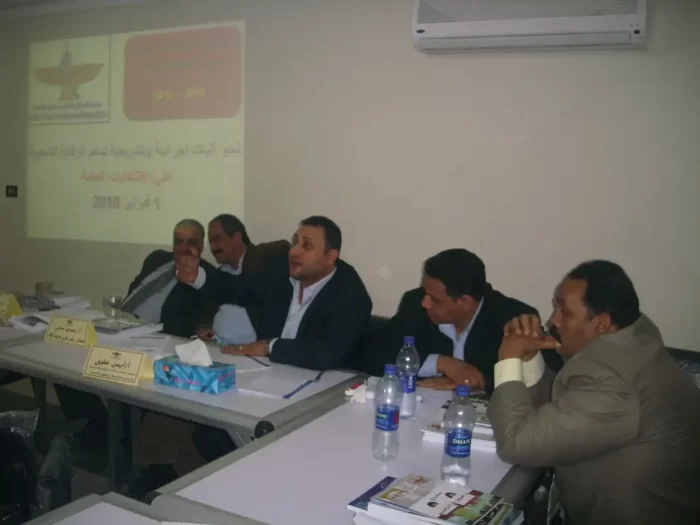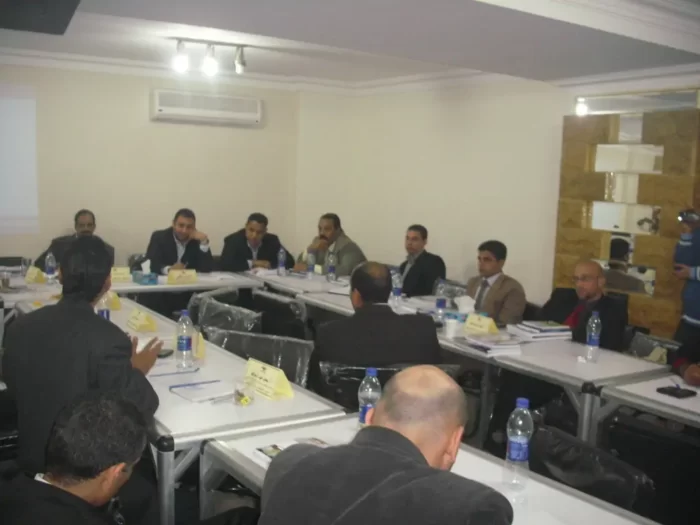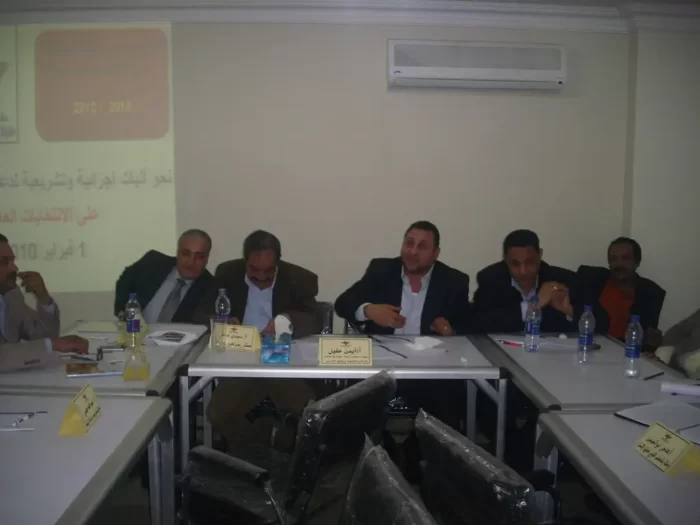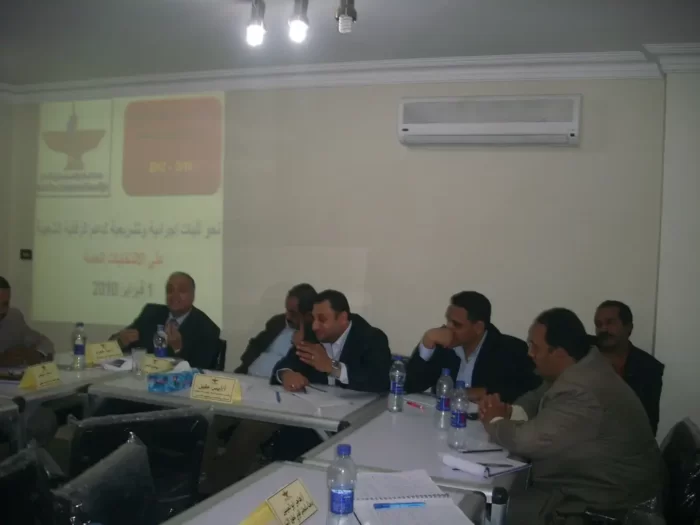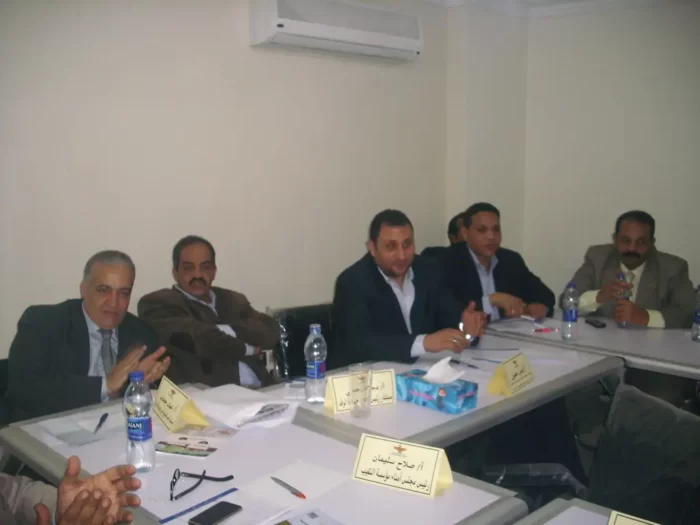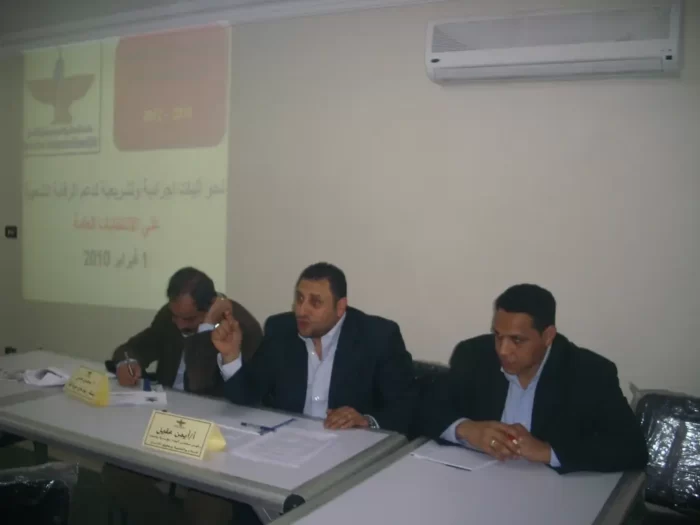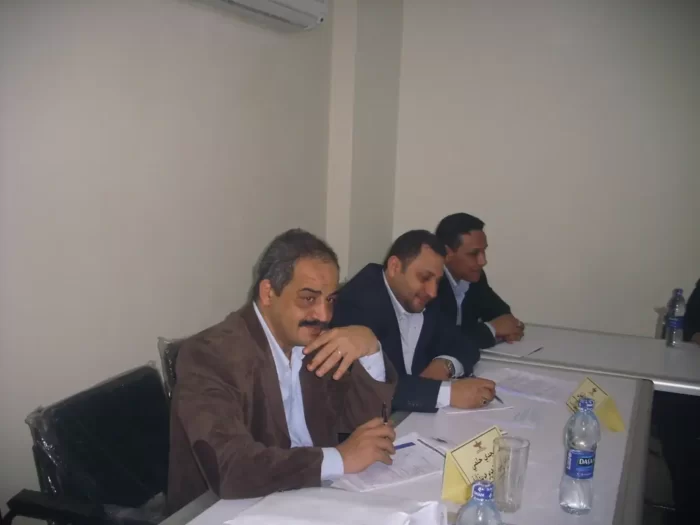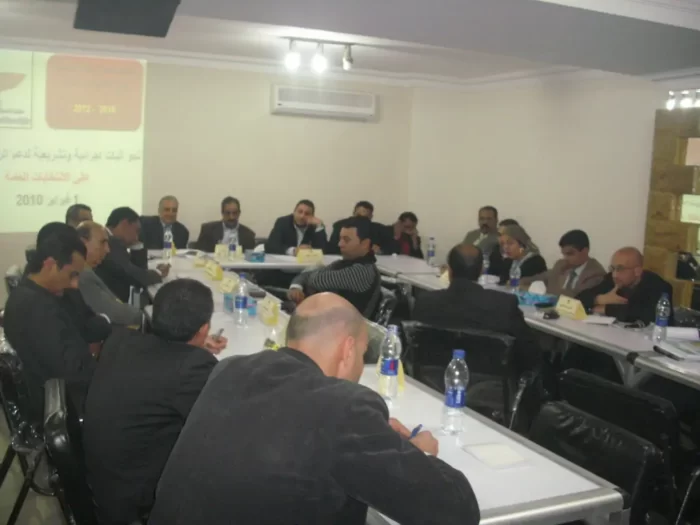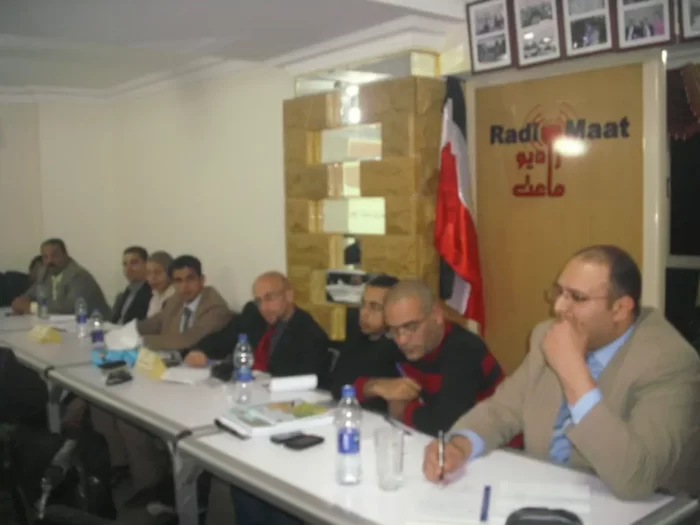Systematic evaluation of past experiences and development of training mechanisms to support popular oversight
Because the Egyptian people have an inherent interest in the integrity of the electoral process, support for popular oversight of the elections acquires a pivotal importance in the ongoing societal dialogue regarding the future of democracy and preparations for the upcoming elections during the next two years. Others aim to mix what is political with what is human rights and to deviate electoral monitoring processes into one of two fates: formalism or achieving political gains.
Within the framework of the program to support popular oversight of the general elections, which is implemented by the Maat Foundation for Peace, Development and Human Rights, a panel discussion was held under the title “Towards Legislative and Procedural Mechanisms Supporting Popular Oversight of the General Elections” on Monday, February 1, 2010 at the Foundation's headquarters.
A number of leaders of civil society organizations working in the field of monitoring elections, representatives of political parties and the National Council for Human Rights, media professionals and experts concerned with the electoral process participated in the panel discussion. The Arab League for Elections, Mr. Mohamed Farag, Assistant Secretary-General of the Tagammu’ Party, Mr. Salah Suleiman, Chairman of the Board of Trustees of Al-Naqeeb Foundation, Mr. Saeed Abdel Hafez, Chairman of the Board of Trustees of the Forum for Dialogue Foundation and responsible for civil society organizations in the Wafd Party, Mr. Jamal Barakat, Chairman of the Board of Trustees of the Adalah Foundation, Mr. Reda Abdel Al-Aziz, responsible for civil society organizations at the National Council for Human Rights, Mr. Muhammad Abdullah Khalil, the human rights activist, Mr. Abdel Nasser Qandil, a political researcher, Mr. Abdullah Helmy, political marketing officer at the Reform and Development Party, Mr. Shihab Abdel Majeed, Secretary General of Youth in the Democratic Front Party, Ms. Hajar Abu Al-Ainin, researcher at the Complaints Office of the National Council for Human Rights, and Mr. Abdel Nasser Abdul Hamid, President of the Ambassador of Good Association.
Participants discussed the dimensions and components of popular oversight over the general elections and stressed that it is not a substitute for oversight by civil society organizations, but rather an expansion of its scope and addition to it by including new societal groups in popular oversight processes. The participants also discussed the current legislative and procedural framework and its suitability for effective popular oversight, where they agreed However, the current framework, despite its inadequacy, can still be worked on in parallel with advocacy and pressure to improve it.
Participants in the panel discussion agreed that effective and systematic local oversight that adheres to international rules for monitoring elections is an objective alternative to the demand of some for international oversight of general elections, pointing out that the experience of international oversight of elections in some countries was not a real guarantee of the integrity of the elections that were conducted under their banner given It is easy to put obstacles and constraints in front of international observers, which eventually forces them to rely on local observers.
The participants also discussed the required role of the popular parties that will be included in the plan for popular oversight of the general elections, where there was great agreement that this role is not so complicated that it is impossible to include large numbers of them in the monitoring processes, but rather it is easy to provide them with the basic skills and knowledge that enable them monitoring the electoral process.
During the discussion, the problem of the lack of a training guide for observers of the electoral process that takes into account the Egyptian conditions was also raised, as all that is available is an Arabization of foreign documents that originated in a political, social, legal and cultural climate different from the conditions in Egypt. in the field of electoral coverage.
The subject of evaluating previous experiences in observing the general elections received a great deal of discussion, as the participants considered it a real beginning to create a real popular oversight over the elections. And its areas of success and its shortcomings. It is worth noting that Maat carried out a similar activity in 2007 by implementing the monitoring project in order to participate with self-financing to monitor the performance of the observers of the 2007 Shura Council elections.
Representatives of the Maat Foundation explained the objectives, steps and stages of the program to support popular oversight of the general elections, which aims to build the capacities of the local community and electoral districts and mobilize their potential powers to monitor and support the integrity of the electoral process. Through the People's Assembly elections in 2010 and the presidential elections in 2011, the program is implemented in 35 constituencies in partnership with 35 civil organizations so far.
For the first time, people's committees will be formed with a legal status that will be responsible for monitoring all stages of the electoral process. They will participate in all stages of the monitoring process, from planning to drafting the final report, in addition to developing an innovative mechanism to convert increasing numbers of voters into actual observers. A training and rehabilitation program will be provided. For committee members and voters, it ensures that they obtain the required knowledge and skills.
The panel discussion came out with a set of important recommendations, the most important of which are the following:
- Systematic and objective evaluation of the experience of civil society organizations monitoring the general elections during the past years.
- Developing electoral monitoring literature and working on preparing a training manual that is compatible with the Egyptian political, social and legal framework.
- Work to include new and effective groups in efforts to monitor the electoral process, and to develop and intensify rehabilitation and training programs directed at specific groups, such as media figures and natural and local leaders.
- Continuing to hold panel discussions for the parties concerned with the integrity of the electoral process, especially media professionals, political parties and civil society organizations, so that a meeting will be held with each group separately to determine the training and qualification needs of each of them and evaluate them for the previous stage.
shortlink: https://maatpeace.org/en/?p=37700



